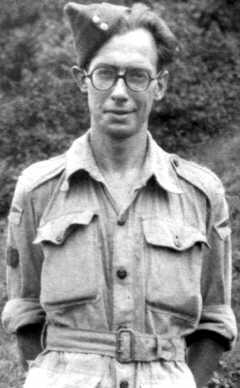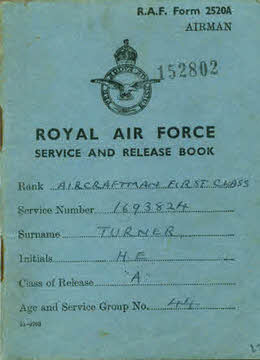When the 16th day of July 1946 dawns, I am in South India, my demobilisation imminent, at an RAF camp on the outskirts of Bangalore, attending a brief EVT course doing commercial art. Tuition is rudimentary as might be expected, since Educational and Vocational Training is largely a token gesture by the military authorities, an improvised recognition of the need to transform trained killers back into domesticated civilians, prior to release from the armed forces and shipment home to their loved ones. Having absorbed all that the course has to offer, I'm left with a day to fill before reporting back to my unit up north, near Poona.
We're free to leave camp but have been warned to stay clear of the old part of town, where the post office building in Crescent Road is surrounded by armed guards in anticipation of a demonstration. A widespread strike by Indian postal workers has already brought business to a standstill in several major cities. I wander out into the sunshine away from potential trouble, to the east of the town, to make some sketches of an ancient Dravidian temple at Ulsoor Tank.
Such expeditions always attract an audience. A small, curious group gradually hems me in, until there is scarcely elbow room to work. Whenever I look up from my drawing pad to gaze at some elusive detail, all eyes follow mine, then drop back to the page, studying intently every mark my pencil makes; except for one youngster at my left, who just stares disconcertingly into my face the whole time.
On my right, an enthusiastic watcher takes charge of proceedings, admonishing newcomers who stroll up and block the view, sending them round to the rear of the group. There is a lively exchange of comment in between sketches.
A nearby church is pointed out to me: why, I'm asked, don't I write that in my book instead of this boring old temple ? Or I'm told that there's a nice new building down the road, a hospital, much more interesting. Then the complete put-down: a pitying enquiry... why not get a camera instead of doing all this hard work ?
The sun is overhead; it's hot and sticky. I wriggle through my interrogators and retreat to the shade of a nearby coffee house, content to watch Bangalore languorously pass by while I cool off under flapping ceiling fans, sip iced coffee laced with cream from a tall glass, and chew salted fat cashew nuts from a dish thoughtfully left on the table to encourage repeat orders.
I return to camp that afternoon in a contented mood, pack my kit and collect a travel warrant for the return journey to Poona on the early morning train the following day. The hut is deserted but some benefactor has left a few recent copies of the Daily Mirror, mailed from home, on the table.
I am catching up with the exploits of Jane, the forces favourite cartoon strip, when whooping, hollering inmates return to tell me that radar mechs in the mid-40s demob groups are due to report to Bombay by August 6th, ready for the trip home. It's now almost a year since VJ Day and the official end of hostilities in the Far East, and I seem to have been waiting for this news so long that I suspect a leg-pull.
They drag me round to the orderly room notice board where the signal is pinned up, and make me read it out loud before I believe it. And even then it takes a while to sink in. |


|
When the war ended, we were told that priorities for demobilisation and return to Britain would be determined by a simple formula, balancing age and length of war service. So in the autumn of 1945, a 25-year-old airman with four years war service as a radar mechanic behind me, I find I'm placed in demob group 44, while the first lucky sods allowed to head for Bombay and a troopship home are placed way down in the 20s group.
Complications soon set in. The powers-that-be start to drag up imponderables like "essential technical qualifications" and "exigencies of the service" to delay key groups; in other words you will only get demobbed as and when it suits them. The subsequent delays that result do not go down well among enlisted men left with little useful work to do as military routines become increasingly redundant.
By the New Year, the rate of demobilisation proves so tardy and manifestly unfair that protest strikes in RAF camps spread spontaneously throughout India and South-east Asia. The speed and success of the revolt owes much to the fact that disaffected troops control all essential communications.
Censorship of forces mail was stopped some months before, which probably explains why the military authorities seem so completely out of touch with the mood of the lower ranks, and at a loss how to cope with such sweeping insubordination. But the government back home gets the message, and the word "mutiny" is tacitly avoided.
It is probably a matter of deep relief when the strikers, having given vent to their feelings, voluntarily return to normal duties at the end of January. Some belligerent face-saving statements come from the Air Ministry, several courts-martial are held, a few scapegoats sentenced. Matters are discussed in Parliament, though not reported very extensively in the British press, and most of the military sentences are duly quashed.
For a brief spell it seems that positive action is being taken to improve matters; then, amid vague talk of the world-wide shortage of shipping space, inertia takes over again.
But now, for us lucky few, our time has come. Escape and freedom beckon. We spend that evening in the NAAFI canteen in riotous celebration. The 16th of July 1946 is firmly established in my mind as a day I shall long remember.
However... with the benefit of hindsight, I realise that more happened that day than the events I've set down. While we whoop it up the members of the South Indian rail unions meet, determined to show fraternal support for the struggling postalworkers, and vote to strike in sympathy.
Next morning, frail, hangovered, all ready to catch a train that is to be the symbolic start of my journey home, it is a distinct shock to find that the railway system of South India has ground to a halt overnight.
Which makes the 17th of July 1946 pretty memorable for me, too. But I guess I'll have to save the story of how that day's problems are resolved for another occasion. ■
© Harry Turner, 2005.
This article appeared in Tash #10 (Tommy Ferguson, 1994) – all but the last couple of lines, which were finally revealed in issue #12. Curiously, this article later appeared in the Fiction Supplement to Andy Robson's zine Krax #36 (1999)
|  |




